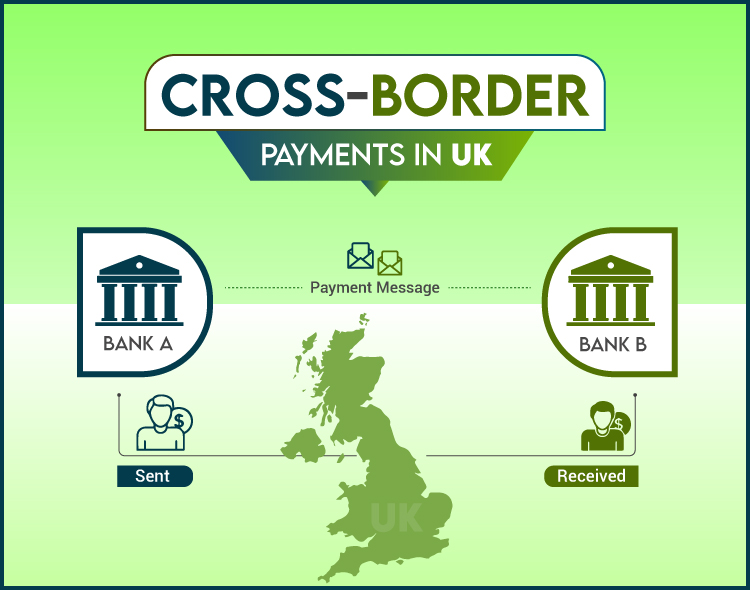Introduction
In this blog, we shall highlight the CBP for the United Kingdom. Any “national payment” or “cross-border payment” made in British pounds or any other EU currency that requires a currency conversion falls under the purview of the UK regime.
All parties involved in a “national payment” are based in the United Kingdom; both the payer’s and the payee’s payment service providers are UK-based institutions.
When the payer’s payment service provider is based in the UK and the payee’s payment service provider is located in the EEA, or when the payer’s payment service provider is located in the EEA and the payee’s payment service provider is located in the UK, the transaction is considered a “cross-border payment” between the UK and the EEA.
In many circumstances, businesses have better, faster, and safer payment choices with cross-border payments. There is no denying the benefits that cross-border payments can bring to your organization.
Let’s get started.
How to Ensure a Smooth Cross-Border Transaction?
A “cross-border payment” is a transaction between the United Kingdom and the European Economic Area in which either the payer’s or the payee’s payment service provider is located outside of the United Kingdom.
A cross-border transaction, in layman’s terms, is one in which a customer from Country A makes a purchase from Customer B, and a modest fee is charged to account for the extra effort involved in translating currencies (for instance, Visa charges 1.2% and Mastercard costs 1%). Credit cards, wire transfers, and digital wallets are just some of the options.
Latest Read: Can Fintech Survive Without IT Support? Let’s Know With Experts!
An e-commerce message SWIFT sends a message to deduct funds from Bank A and deposit them into Bank B. Since they aren’t necessarily connected, they have to go through a third party, like a bank, where they hold joint accounts. However, the entire transaction is finished in less than 3 seconds despite a lot of sophisticated procedures taking place in the background.
Business-to-Business (B2B) will dominate the market by the end of 2027.
This means that if a customer in the UK wants to send money to a nation for which the bank does not currently carry the currency, the consumer will have to rely on the bank’s overseas banking partners to facilitate the transfer. Because of their limited resources, smaller banks must rely on the larger bull banks for their foreign currency reserves.
However, other countries can learn from India’s vigorous attempts to spread UPI abroad and form coalitions. The elimination of SWIFT, a globally centralized system over which the United States has de facto leadership, will result in a decentralized global web of links to faster payment systems across the globe.
How to Avoid the Cross-Border Fee?
The short answer is “yes.” The methods used by shops to avoid paying high currency conversion rates are plausible. You can either work with an acquiring bank that offers multi-currency processing or suggest that your consumers buy from local wholesalers.
Read more: Top 10 Fintech CEO Watchlist
Another choice is also available. With the expansion of online shopping, several major stores are setting up shop in countries where they anticipate a high number of sales. And what exactly does this legal gimmick accomplish? Let’s pretend for a moment that you own a successful American firm with significant UK operations. Once you’ve set up shop in the UK, you may apply for a merchant account there and start accepting credit cards from UK customers without incurring any additional fees due to currency conversion.
Is it prudent to go to such lengths to avoid paying international transaction fees?
Cross-border costs can pile up if you do a lot of business with countries outside of your own. Before making any major business decisions, you should weigh this cost against the cost and risks of establishing a foreign corporate corporation.
Read : Global Fintech Fest 2023 – Outcomes
It is crucial to understand how and when cross-border fees are levied, just as it is necessary to understand any of the transaction costs that appear on your monthly credit card processing account. Having this knowledge at your disposal will allow you to better manage expenses and increase profits.
The source predicts a 43 percent rise in the B2B cross-border payments business, with B2B e-commerce serving as a key driver. Consumer cross-border payments were defined as “a significantly smaller market” by the source, although they forecasted an increase of around 80% over the next seven years.
[To share your insights with us, please write to pghosh@itechseries.com ]
